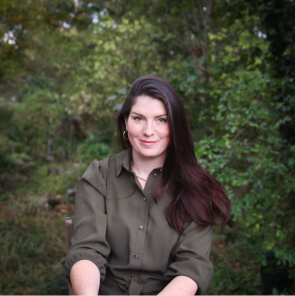You are here
- Home
- Dr Lucy Dablin
Dr Lucy Dablin
Professional biography
I am Lecturer in Environment and Sustainability at the Open University, UK. My background is in sustainable rural development in the Amazon Rainforest. I am an applied researcher and I work with communities to develop innovative and sustainable agricultural interventions that can strengthen food security, improve livelihoods and contribute to the adaptation to, and mitigation of, climate change. My academic work is focused on nature based solutions and is multidisciplinary due to the applied nature of my research. Most recently I have been engaged in understanding how carbon markets can mobilise improved agricultural practices and contribute to the delivery of the United Nations Sustainable Development Goals.
Research interests
- The potential for tree-based agriculture (practices known as agroforestry and silvopasture) to be more profitable and productive than conventional farming practices in the UK and the neotropics;
- The chemical and physical interactions between forage and livestock;
- The design and implementation of nature based solutions with farmers and communities.
My research publications are hosted on Open Research Online
Teaching interests
U116 Environment: journeys through a changing world
Our world is changing fast – we are experiencing pressure from climate change, growing demands for finite resources, impacts of pollution and waste, biodiversity loss and the extinction of many plants and animals. Environment: journeys through a changing world introduces you to subjects from the natural sciences, social sciences and technology to develop your understanding of environmental issues and sustainability concerns. It shows how people are seeking positive solutions to environmental challenges where you live, in the Arctic, Africa, the Amazon and China. You do not need any prior environmental knowledge to study this key introductory OU level 1 module, just an interest in the future of our planet.
This on-screen module spans biology, chemistry, earth science and physics, drawing them together in a holistic approach to studying the environment. You’ll investigate air, water, earth, life and cycles and explore the processes, interactions and feedback mechanisms operating within different environments. Practical experiences provided through multimedia interactive ‘virtual’ field trip activities and project work allow you to develop skills and apply your learning. By the end, you will be able to make critical analyses of environmental processes and structures, e.g. landforms, soils, water flows and habitats of flora and fauna, and comment on anthropogenic influences and their likely consequences.
This module considers the interactions between terrestrial organisms and their environments – that together form ecosystems, ranging from simple microbial communities to tropical rainforests. We could even consider earth as a whole ecosystem. The module will introduce you to key ecosystem concepts, and develop your understanding of the stability and resilience of ecosystems to disturbances such as disease and pollution. You’ll learn how ecosystem function depends on exchanges of water, energy and nutrients; and gain practical experience with current research techniques, including real-time monitoring and computer modelling. Finally, you’ll gain experience in writing professional-style reports on ecological
Publications
Journal articles
Does the Southern Green Anaconda, Eunectes murinus, seek areas of high prey concentration in southeastern Peru? (2024-06)
Champagne, Patrick S.; Herman, Thomas B.; Rosolie, Paul; Singer, Dylan; Horton, Dan; Payne, Carter J.; Dablin, Lucy; Colville, David; Cardenas, Julio; Quevedo, Miryam; Avery, Trevor and Pitman, Renata Leite
Food Webs, 39, Article e00348
Browse from Three Tree Legumes Increases Forage Production for Cattle in a Silvopastoral System in the Southwest Amazon (2021-12)
Dablin, Lucy; Lewis, Simon L.; Milliken, William; Monro, Alexandre and Lee, Mark A.
Animals, 11, Article 3585(12)




